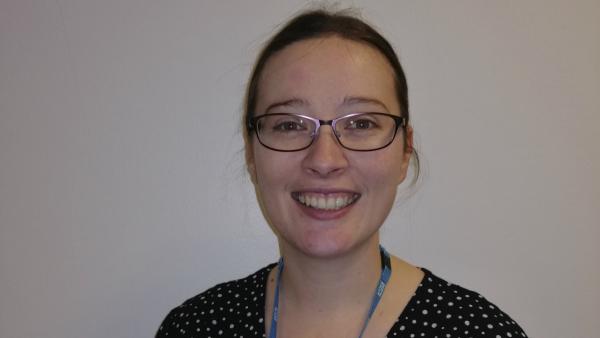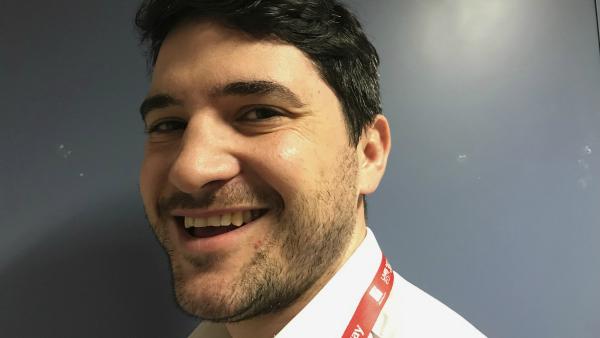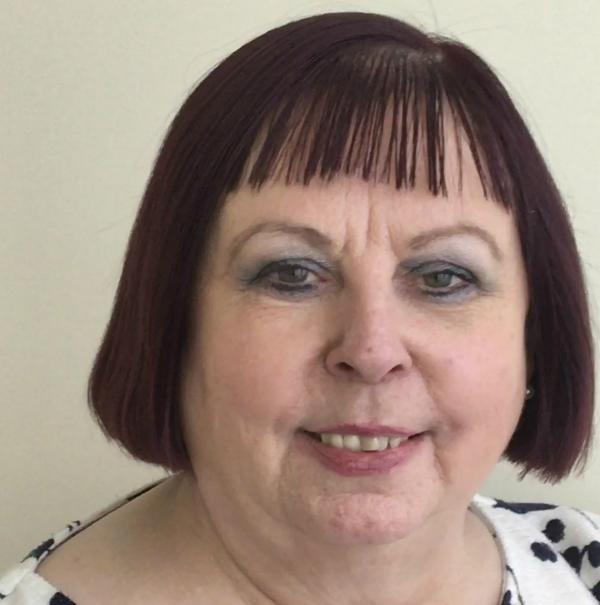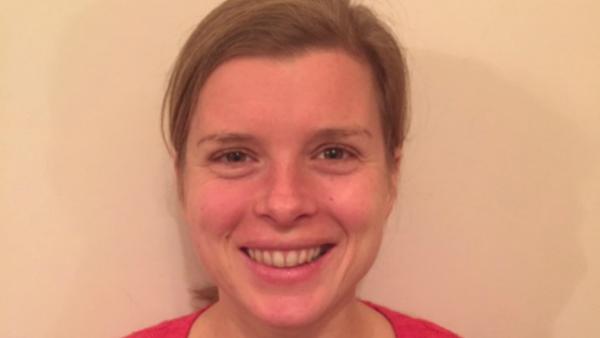Eight physiotherapists have been appointed allied health professional research champions.

The AHP research champion scheme, created by the National Institute for Health Research (NIHR) and the Council for Allied Health Professions Research (CAHPR) covers all 15 local clinical research network areas in England. It is a pilot funded by NIHR until the end of this year.
The research champions will act locally and link with their counterparts nationally, acting as role models and connectors for AHP health and social care professionals across a local area.
CAHPR support officer Katie Prangle said: ‘It’s an exciting project because having official AHP research champions is a new idea and this is a pilot.
‘Over 90 AHPs applied for these voluntary roles and there’s a really strong physio presence as the largest allied health profession. There
are champions from eight different allied health professions so the project will be a great opportunity for interprofessional working.’
NIHR head of allied health professions Anthea Mould said: ‘We created the scheme to attract AHPs who are knowledgeable and passionate about being research-active and having an impact on patient care.
‘Our champions will join our ever expanding community of role models and research activists who are promoting the work of AHPs and encouraging AHPs to be aware of and involved in health and social care research for the benefit of patients.’
CAHPR director Ann Moore added: ‘Our new and visionary research champions will work closely with our CAHPR hub leaders in England with an overall vision to build more research capacity, promote research implementation and increase the visibility and profile of AHP research and its impact on patients, colleagues, professions and health and social care organisations.’
Meet the eight physiotherapists and read about their specialist areas and why they volunteered to be a research champion
East Midlands
Katie Robinson
Nottingham University Hospitals NHS Trust
‘I am the allied health professional (AHP) clinical academic lead for Nottingham University Hospitals NHS Trust. I have a range of experience working as a physiotherapist for older people across community settings, as a research facilitator for the NIHR Clinical Research Network East Midlands, and a clinical researcher. I completed the masters in research methods funded by the NIHR in 2011 and in 2017 was awarded my CLAHRC-funded PhD: Developing a chair based exercise programme for older people.

‘I am passionate about driving improvements in patient care and outcomes through evidence based practice which is why I volunteered for the research champion role.
‘This new and exciting role demonstrates the commitment of NIHR to support all AHPs to engage with and develop evidence to drive improvements in patient care. I am looking forward to working with a national group of research champions to drive both the local and national AHP research agenda to ensure there is a high quality evidence base with real clinical impact.’
Thames Valley and South Midlands
Owen Gustafson
Oxford University Hospitals
‘I am a critical care physiotherapist with a background in respiratory, working on the adult intensive care unit at the John Radcliffe Hospital, Oxford.
‘Critical care is a highly active research area with multiple studies regularly taking place simultaneously in a single ICU. As such, critical care physiotherapists are commonly exposed to and often highly engaged in research.
‘I am currently seconded to the Kadoorie Centre for Critical Care Research at the University of Oxford, and have been fortunate to previously secure small research grants to allow some research time.

‘My journey into research so far has been a challenging one, and I am aware of the difficulties that AHPs encounter in attempting to start a career in research and combine this with clinical work. With this experience, I volunteered as a research champion to support AHP clinicians within the Thames Valley and South Midlands to both engage in research and begin a clinical academic career.’
Eastern
Carol Payne
Norfolk & Norwich University Hospital
‘I was motivated to apply to become a research champion because of the role that my self-appointed “critical friends” played when I became a part-time post graduate research student at the University of East Anglia in 2005.
‘I continued to work as a clinical shoulder specialist and advance practice physiotherapist at the Norfolk and Norwich Hospital partly because I didn’t see myself as a researcher. It was my academic supervisory panel, my heads of service and my fellow post grad students that supported me through the whole process to help me make a successful ethics application, secure project funding and ultimately survive my viva.

‘As a result my research findings made an important contribution to the existing body of evidence. Through attendance at national and international peer review conferences I have, in turn, been able to dispel some of the myths about qualitative methodologies and methods to recommend the patient reported outcome measures that should be used in randomised controlled trials, from the patient’s perspective.
‘As a research champion I hope to provide the same support to AHPs in the Eastern region. I believe there is still a perception that highly motivated, innovative physiotherapists who want to provide the best quality evidence-based care for their patients cannot undertake research themselves.
‘I am keen to engage AHPs in all types of research activity. Initially I would like to encourage everyone to become “research ready” ie to complete good clinical practice online training, update research CVs and attend clinical research network principal investigator training that is provided free by the network locally.
‘I think it is important to understand what the barriers are to AHP’s participation in research. Only then we will increase research capacity in the NHS and through provision of alternate career pathways facilitate patient participation in NIHR clinical trials in the hospital.
‘I therefore see the role of the AHP research champion is to be a “critical friend” who will encourage more physiotherapists to be more aware of, and involved in, clinical research for the benefit of our patients.’
Wessex
Nikki Collings
University Hospital Southampton NHS Trust
‘I am passionate about strengthening links between clinical practice and research, and believe AHPs are uniquely placed to support the transition of research into clinical practice across all aspects of patient care.
‘As a physiotherapist working within the critical care team at University Hospital Southampton, I have been involved in implementing an early mobilisation programme for patients on intensive care, going on to complete my MSc and later a research fellowship with the Southampton Centre for Biomedical Research.
‘My research interests involve examining the impact of critical care on skeletal muscle structure and function, and early rehabilitation in an intensive care setting, recently co-authoring a successful NIHR RfPB bid investigating short-term functional outcome in critical care patients receiving an early rehabilitation intervention.

‘My main role now involves leading the neurological and cardiac research teams at UHS, both large multi-professional teams, as a senior research physiotherapist, working closely with the clinical research network to deliver research across these specialities for the benefit of our patients.
‘As a champion, I hope to help showcase the great research being completed by AHPs across the region, and work with trusts to increase opportunities for AHPs involvement in research. I look forward to developing this role over the next year and am excited to be meeting and working with AHPs across the region.’
North West London
Rebecca Smith
Imperial College Healthcare NHS Trust
‘I am a vestibular physiotherapist currently completing an NIHR funded PhD in the field of traumatic brain injuries. My PhD is exploring current practice and investigating the feasibility of improving practice in the area of vestibular assessment and treatment in the acute stages of brain injury.

‘As an early stage researcher and |someone who has been lucky to benefit from strong managerial support, I wanted to become an AHP research champion to encourage others to start or continue with their clinical academic career and improve the translation of research into clinical practice.’
South London
Jacky Jones
Guy’s and St Thomas’ NHS Trust
‘I am head of physiotherapy at a large physio department with over 270 staff providing inpatient, outpatient and community services to local, regional and national populations. I’m also therapies research and development lead at the trust and honorary clinical lecturer at King’s College London.
‘During my career I have worked clinically in a number of areas including critical care and amputee rehabilitation, but for the last eight years my focus has been on physiotherapy provision to older adults admitted acutely to hospital.
‘I completed my doctorate in 2015, undertaking a realist evaluation to study the impact of physiotherapy on older adults admitted to hospital. My research interests include models of service provision constructed through needs-based targeting, dosing of physiotherapy interventions
and patient activation in the acute setting.
‘I have been very fortunate in my career to have been supported in research activities and I applied for the research champion role as I am passionate about physiotherapists and other AHPs taking an active role in research and having a greater impact on patient care.

‘Recent national strategies, such as AHPs into action and the NIHR AHPs in research strategy, are welcome but present challenges for implementation at local provider level.
‘I am keen to be part of the work supporting AHPs to be “research-active” in the NHS and to have the opportunity to be part
of a community of like-minded AHPs. With the support of NIHR and CAHPR I hope to raise awareness and get more AHPs involved in health and social care research, for the benefit of patients.’
South West Peninsula
Angie Logan
Cornwall Partnership NHS Trust
‘I’ve been a physiotherapist for nearly 12 years. I have 10 years experience working with people with stroke and neurological conditions. I am a clinical specialist physiotherapist in stroke and neurology, working in the community in west Cornwall.
‘I am also a clinical doctoral research fellow funded by the NIHR, in the last six months of my PhD. This is my dream job, a blend of clinical and research.
‘I am passionate about research and the role of research champion. As a clinical academic I understand the challenges of undertaking and delivering research and translating research into clinical practice, and the benefits of delivering evidence-based practice to patients and services. This role will help promote AHPs getting into research and/or moving forward in research, both formally through MSc and PhD but also as principal investigator.
I also understand the challenges of getting into research. Not all teams/organisations are research active and the role of AHP research champion is an ideal opportunity to promote the benefits of clinicians and organisations being research active.
Yorkshire and Humber
Christine Comer
Leeds Community Healthcare NHS Trust
‘I have worked as a musculoskeletal physiotherapist for over 20 years. Over the last 10 years, my clinical and research interests have focused on optimising community healthcare and self-management for older adults with spinal conditions.
‘Since being awarded an NIHR clinical lectureship last year, my time is now split between clinical work as an extended scope musculoskeletal physiotherapist: developing local research capacity among physiotherapists in community-based musculoskeletal care; and undertaking my own programme of research work.
‘With exciting new clinical opportunities for AHPs, including emerging first contact practitioner roles, an expanding range of extended skills such as independent prescribing, and growing involvement in public health improvements, there is a need for parallel growth in AHP research to underpin these new roles and evolving healthcare practices.
‘I believe that there is an unrealised potential for AHP clinical researchers to drive national improvements in community healthcare, health service delivery, and public health.
‘The research champion role provides an ideal opportunity to be part of a national network of AHP research champions working together to support the growth of allied health professionals’ engagement in research activity.’
Find Out More
Number of subscribers: 1